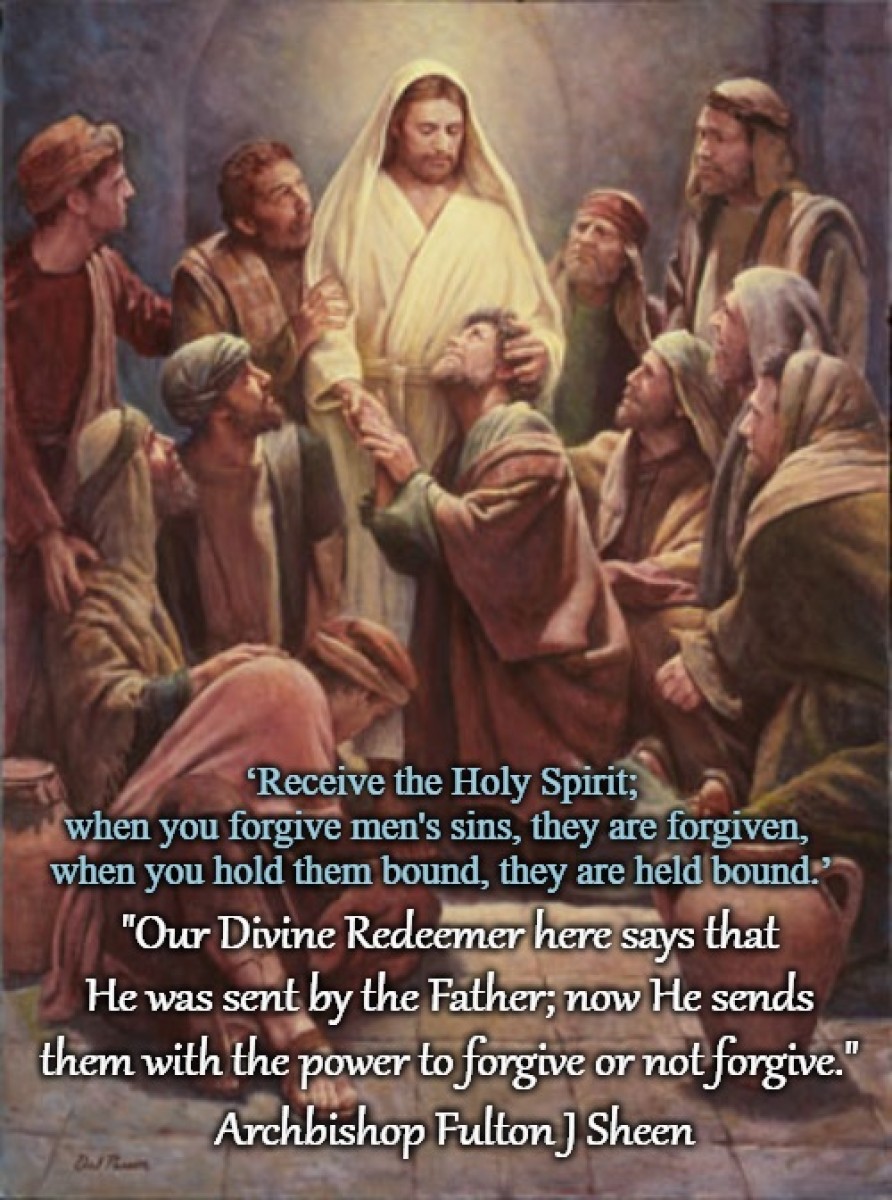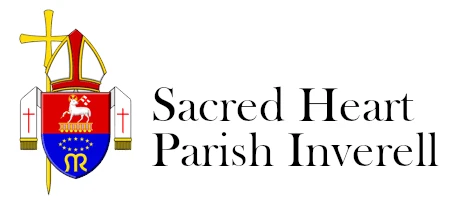2nd Sunday of Easter / Divine Mercy Sunday (Year C) - 27 April 2025
27th April 2025

“O soul steeped in darkness, do not despair. All is not yet lost. Come and confide in your God, Who is love and mercy.” - St Faustina Kowalska
A reflection on the Sacrament of Penance as instituted by Christ in today's Gospel by the Venerable Archbishop Fulton J Sheen:
"The Sacrament of Penance was instituted by Christ in the form of a judgment, for the remission, through sacramental absolution, of sins committed after Baptism and granted to a contrite person confessing his sins.
"All through the Old Testament there was a preparation for this sacrament, inasmuch as God strove to induce men to acknowledge their sins before Him. To elicit a confession, God said to Adam: ‘Hast thou eaten of the tree?’ God said to the first murderer: ‘Where is thy brother?’ In Mosaic legislation, a sinner brought a sin offering, which was burned in a public place, to show that the sinner was not afraid to admit his guilt. The prophet, Nathan, heard David's confession after his sin with Bethsabee, and assigned to him a penance. John the Baptist heard the confession of those who came to hear him preach. These were only types and figures of the sacrament that was to come, because forgiveness became possible only through the merits of Our Lord's Passion.
"No one questions the fact that Our Blessed Lord had the power to forgive sins. The Gospels record the miraculous cure of the paralytic at Capharnaum. Our Lord first told the paralytic that his sins were forgiven him, whereupon those round about laughed at Him. In response the Saviour told them that it was just as easy to cure the man as it was to forgive his sins; so He cured the paralytic: ‘To convince you that the Son of Man has authority to forgive sins while He is on earth’ (Mark 2:10).
"Our Blessed Lord was saying that God in the form of Man had the power to forgive sins; that is to say, through the instrumentality of the human nature, which He received from Mary, He was forgiving sins. Here is an anticipation of the fact that it is through humanity that He will continue to forgive sins; i.e., through those who are endowed with sacramental power to do so. Man cannot forgive sins, but God can forgive sins through man.
"Our Lord promised to confer this power of forgiveness, first of all, to Peter whom He made the rock of the Church. He told Peter that He would ratify in heaven the decisions which Peter took on earth. These decisions were explained in two metaphors of ‘binding’ and ‘loosing.’ The power of jurisdiction was given to the one who had the keys of the kingdom. This promise made to Peter was followed up a little later on by one made to the Apostles. The second promise did not bestow the primacy, for that was reserved to Peter. Our Lord told the Apostles: ‘I came upon an errand from My Father, and now I am sending you out in My turn.’ With that, he breathed on them, and said to them, ‘Receive the Holy Spirit; when you forgive men's sins, they are forgiven, when you hold them bound, they are held bound.’ (John 20:21-23)
"Our Divine Redeemer here says that He was sent by the Father; now He sends them with the power to forgive or not forgive. These words imply ‘hearing confessions,’ because how would the priests of the Church know which sins to forgive and which sins not to forgive if they did not hear them?
"One can be very sure that this sacrament is not of human institution, for if the Church had invented any of the sacraments, there is one that it certainly would have done away with, and that is the Sacrament of Penance. This because of the trials that it imposes upon those who have to hear confessions, sitting in the confessional box for long hours while listening to the terrific monotony of fallen human nature. Because it is a divine institution – what a beautiful opportunity it is to restore peace to sinners and to make them saints!"
(These are the Sacraments)
Easter Blessing Prayer for Families
Almighty God, who through your only-begotten Son Jesus Christ overcame death and opened to us the gate of everlasting life: Grant that we, who celebrate with joy the day of the Lord’s resurrection, may be raised from the death of sin by your life-giving Spirit; through Jesus Christ our Lord, who lives and reigns with you and the Holy Spirit, one God, now and forever. Amen. 🙏💖💐
Divine Mercy Sunday
On 13 June 2002 St Pope John Paul II decreed a plenary indulgence under the usual conditions to the faithful who, on Divine Mercy Sunday, in any church/chapel, in a spirit that is completely detached from the affection for any sin, take part in the prayers and devotions held in honour of Divine Mercy, or who, in the presence of the Blessed Sacrament exposed or reserved in the tabernacle, recite the Our Father and the Creed, adding a devout prayer to the merciful Lord Jesus (i.e. Merciful Jesus, I trust in You!).
There will be Exposition of the Blessed Sacrament after Mass this Sunday followed by the Chaplet of Divine Mercy and Benediction. All are welcome to attend. Divine Mercy Prayer Guides are available at the paper table or online at www.divinemercy.org.


